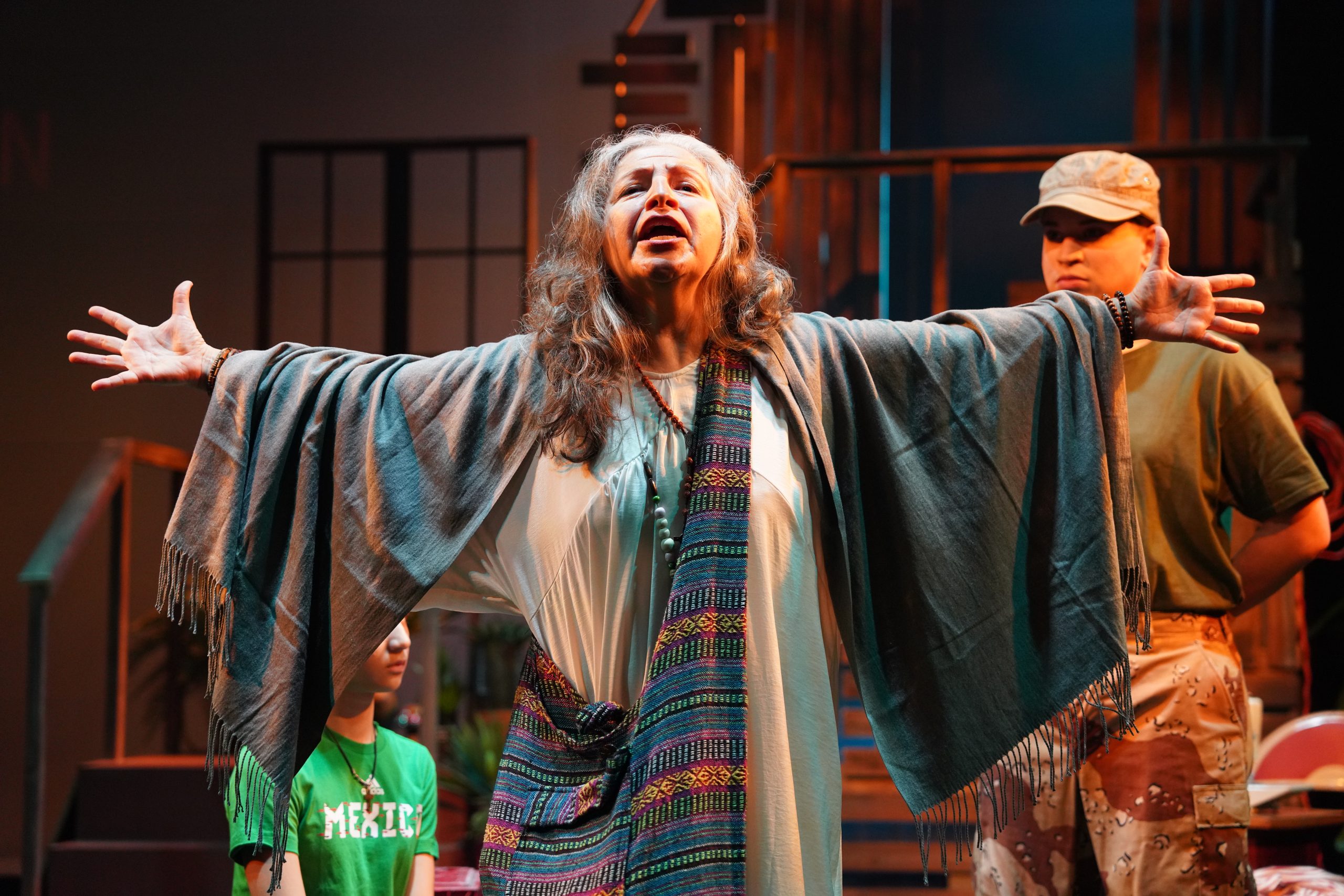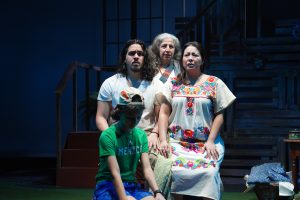
Issabel Quintero – Courtesy of LaKesha Lorene. Used with permission.
I am a two-year resident of Haughville, a highly diverse neighborhood located on Indianapolis’ near Westside just minutes from the IUPUI campus and White River State Park. Once the home of Slovenian and Romanian immigrants, its residents now include a large population of Mexican immigrants, a continuously growing community in Indy. Living on my own block are neighbors who hail from the states of Michoacán, Veracruz, Morelos, and Guerrero. Based on my regular interaction with my neighbors, I know some to be undocumented and also “dreamers” (DACA).

Clockwise – Christopher Centinaro, Isable Quintero, Erica Cruz Hernandez and Jasmin Martinez. Courtesy of LaKesha Lorene. Used with permission.
Because of my own Mexican heritage and as the son of farmworkers, living among these family oriented, hardworking, vibrant people has been a true blessing. Born and raised in this country, and assimilated into its culture, I nevertheless take a great deal of pride in my roots. It is because of my own background and exposure to the Latinos who surround me that I completely identified with “Mojada,” a drama presented by Indianapolis Shakespeare Company, that I saw Sunday at the Basile Theatre at Phoenix Theatre Cultural Center.
Written by Chicano playwright Luis Alfaro, “Mojado,” a pejorative that means “wetback,” is based on Euripides’s “Medea.” In this case the ancient tale is transformed into a modern reimagining of the Greek tragedy. In this version, Alfaro transforms the Colchian sorceress into a Mexican indigenous wife and mother who crosses the border with her husband, son, and servant. The story is a window both into the harrowing life-and-death journeys undertaken to travel to enter this country and the often poverty-stricken lives of these undocumented immigrants who struggle to survive and adapt once they arrive.
“Mojada” is set in Los Angeles, in the shabby backyard of Medea (Erica Cruz Hernandez) and her husband Jason (Christopher Centinaro), their ten-year-old son Acan (Jasmin Martinez) and Tita (Isabel Quintero), the curandera (healer) who raised Media from infancy when her mother died. Suffering trauma resulting from her crossing, Medea finds if impossible to go beyond her apartment and yard. Her only way to escape is through memory or magic. Illiterate but not stupid, she toils to support her family by sewing shirts for unscrupulous sellers who pay her a pittance for her meticulous work and then sell the shirts at an exorbitant profit. Jason, her attractive and charming husband, is ambitious and driven and willing to do whatever it takes to rise above poverty and score the American Dream for his family. Finding a good job with a construction company, run by Armida (Kidany Camilo) who has designs on him, Jason sees her attention to him as merely a means to an end. Ultimately, threatened by those very things that immigrants aspire to as they seek to fit in, Medea makes choices to protect what she holds dearest. If you are familiar with “Medea” the original, I don’t have to tell you that the ending is unspeakable. Not to spoil “Mojado,” I will only say that its ending is similar but not matching.

L-R Kidany Camilo, Erica Cruz Hernandez and Christopher Centinaro. Courtesy of LaKesha Lorene. Used with permission.
Making her directorial debut, Maria Souza ably guided the production which featured an all-Latino cast. Unfortunately, there was some unevenness, such as the casting of actor Hernandez, in the ingenue role of Medea, who is older than her character’s husband Jason. Then there was the problem resulting from Martinez’s lack of projection and softly reciting dialogue I had difficulty hearing. In the end, these flaws were indeed minor.
On the plus side, there were outstanding performances, including that of Hernadez, who despite the age issue was convincing, nevertheless. Also turning in commanding performances were Centinaro and Quintero. Standing out for they/she/he’s multiple performances as Jason’s formidable boss Armida, Josefina, Medea’s spunky, irascible friend, and a soldier, was Kidany Camilo.
Especially impressive were the production elements that included the work of set designer Josefina Cordova, lighting designer Denisse Chavez, sound designer Noel Nichols, costume designer Anthony Sirk, magic costume designer Féi, projection designer Chris Berchild and Alejandra Carrillo who designed images. The entire creative team took care to faithfully represent Mexican culture and aesthetics with authenticity.
My last time acting on stage was in 1993 in a production of “The Promise,” directed by Bryan Fonseca, late founder of Phoenix Theatre. Written by Puerto Rican playwright, Jose Rivera, the production featured a cast made of primarily Latino actors. At the time, Phoenix Theatre was the first and only theatre presenting works by Latino playwrights in Indianapolis. Watching “Mojada” I couldn’t help but remember my trailblazing, visionary friend and his efforts to give voice to the marginalized, especially Latinos. Ironically it was because of Fonseca that I moved to Haughvlle (or Little Mexico as it was once called) to be his next-door neighbor, just a month before he died from COVID in 2020. I believe he would have been as moved by and as proud of these artists and Alfaro’s compelling message as I was.
Don’t miss “Mojada.” It continues weekends through March 5. Visit phoenixheatre.org for tickets.





